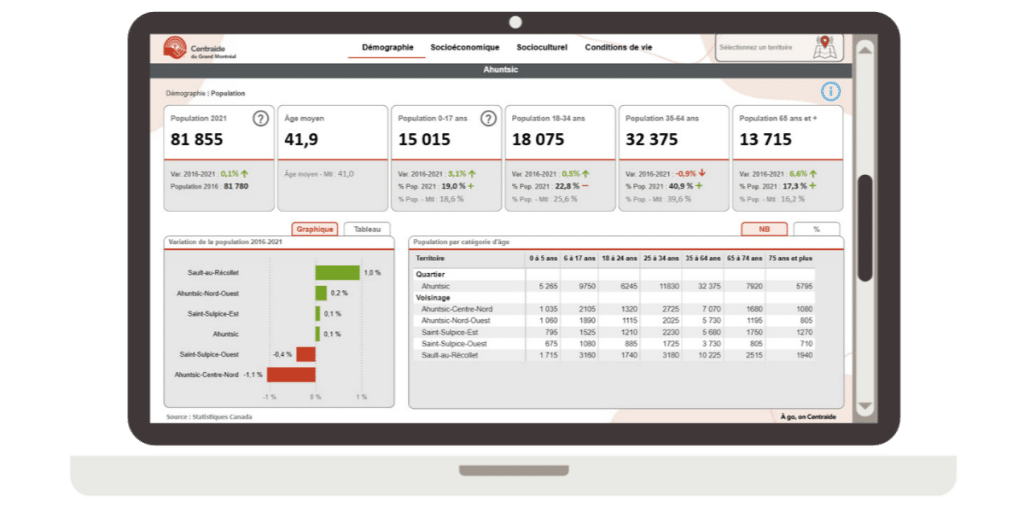
Ahuntsic
Snapshot of
Ahuntsic
Discover key facts
👵 People living alone – more common among seniors
22% of residents (17,085 people) live alone, a higher proportion than in Montreal (19%). Among seniors, this rate climbs to 43% compared to 37% in Montreal. In some sectors, it is nearly one in two: 46% in Sault-au-Récollet and 48% in Ahuntsic Centre-Nord.
📍 Poverty – more pronounced in Sault-au-Récollet and Saint-Sulpice-Ouest
The neighbourhood has 7,540 low-income residents, one-third of whom live in Sault-au-Récollet (2,670 people). Overall, the neighborhood’s low-income rate is comparable to that of Montreal (10% versus 11%), but it rises to 11% in Sault-au-Récollet and 12% in Saint-Sulpice-Ouest.
✏️ Low educational attainment (without a high school diploma) – concentrated in Sault-au-Récollet and Saint-Sulpice-Ouest
9% of residents aged 25 to 64 in the neighbourhood do not have a high school diploma, a proportion equivalent to Montreal’s, but higher in Sault-au-Récollet (10%) and especially in Saint-Sulpice-Ouest (15%). These two sectors also account for the largest numbers of residents without a diploma: 1,390 in Sault-au-Récollet and 810 in Saint-Sulpice-Ouest.
🌎 Immigrant population – lower than the Montreal average, but higher in Sault-au-Récollet
30% of Ahuntsic’s population is immigrant, a rate lower than the Montreal average (33%). Some sectors stand out, however: Sault-au-Récollet has 33% immigrants and Saint-Sulpice-Ouest 39%. One-third of the neighbourhood’s immigrant population (8,150 out of 23,410, or 35%) lives in Sault-au-Récollet, which also has the largest number of non-permanent residents (1,395 people).
👨🏾🤝👨🏼 Diversity – strong presence of visible minority groups in Saint-Sulpice-Ouest and Sault-au-Récollet
34% of Ahuntsic residents belong to a visible minority group, a proportion slightly lower than Montreal’s (38%), except in Saint-Sulpice-Ouest, where it reaches 47%. However, Sault-au-Récollet is home to the largest number of people in these groups (9,130 residents).

Dashboard
Consult this dashboard to access a wide range of demographic, socio-cultural/economic, and living-condition data.



